



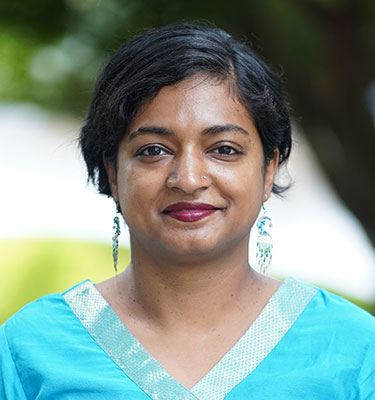


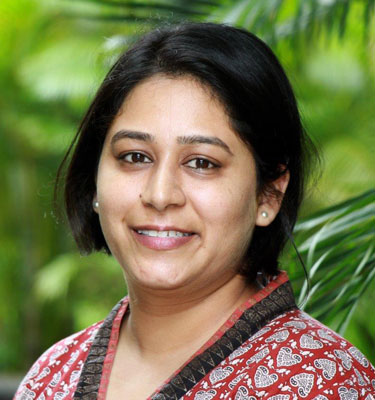
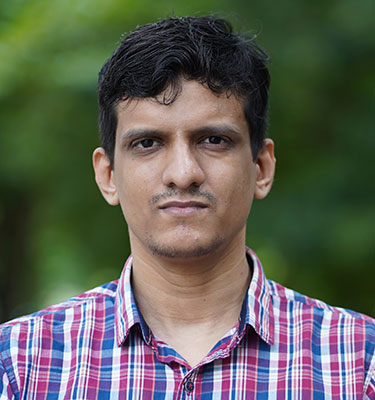
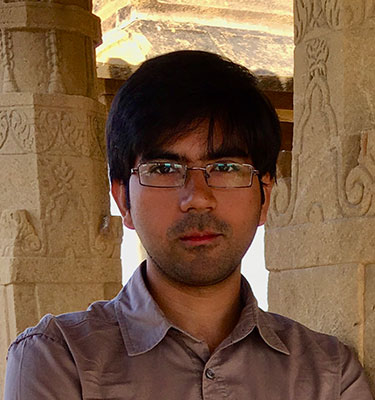
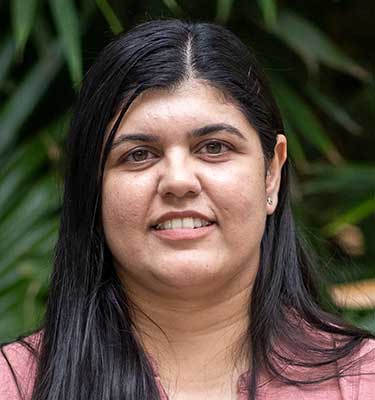


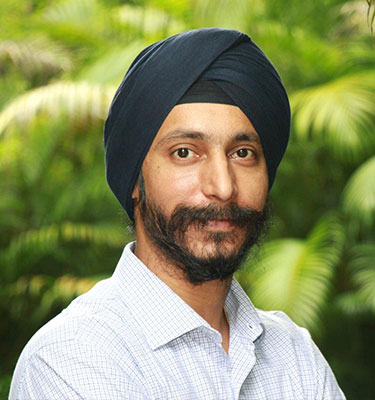

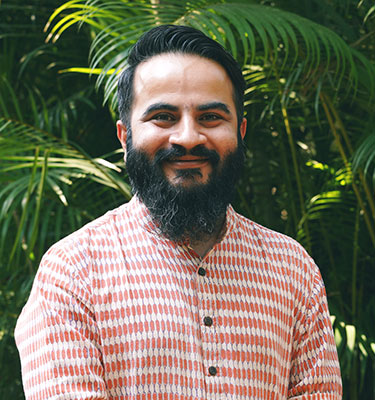

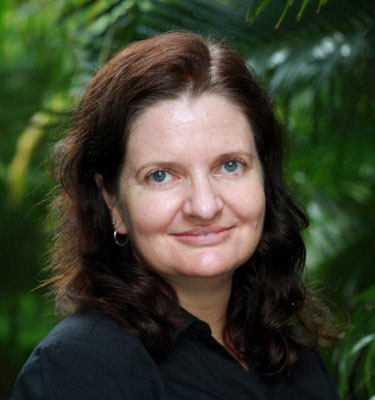
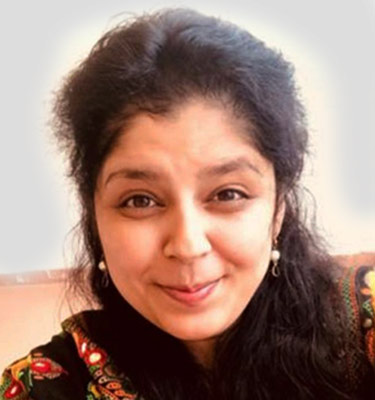

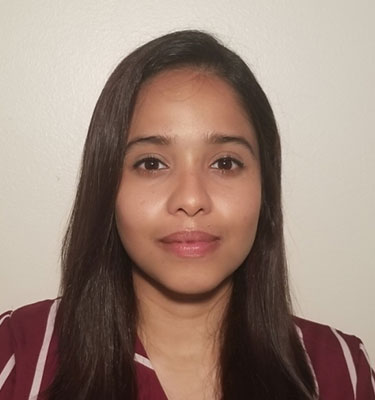
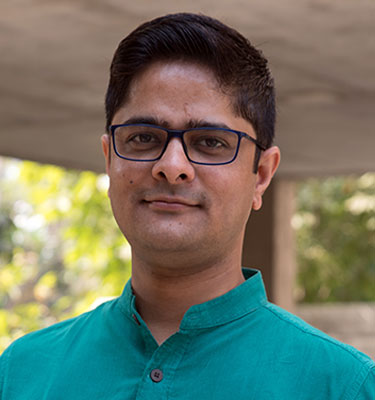



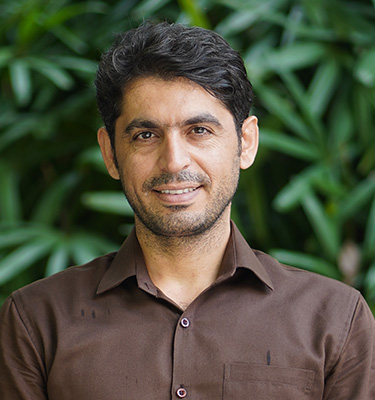






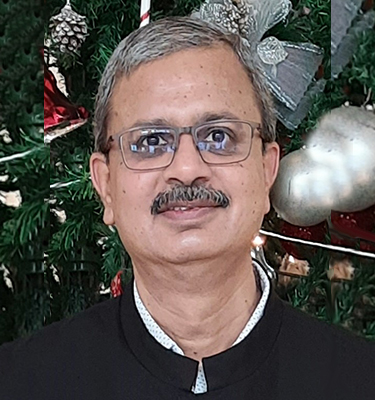
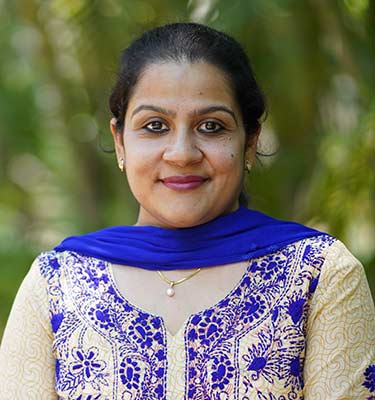

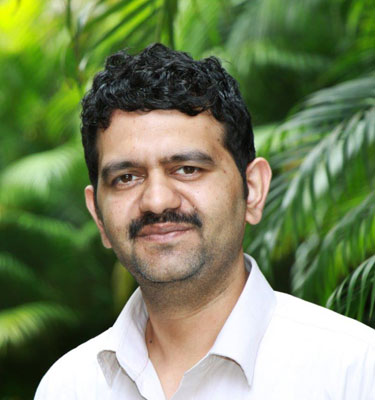




FACULTY
Learning from some of the best minds in education and in the industry

Prof. Ravi Bhavnani
Adjunct Faculty
Email: ravi.bhavnani@flame.edu.in
PhD in Political Science from University of Michigan, USA M.P.P, University of Michigan, Gerald R. Ford School of Public Policy
BIO
Professor Bhavnani is an Adjunct Faculty member at FLAME University. Bhavnani's research explores the micro-foundations of violent conflict by means of agent-based computational modeling and disaggregated empirical analysis. More specifically, his work examines the endogenous relationships among: (i) the characteristics, beliefs, and interests of relevant actors; (ii) social mechanisms and emergent social structures that shape attitudes, decision-making and behavior; and (iii) patterns of conflict and violence.
Bhavnani has an M.P.P. in Public Policy and a Ph.D. in Political Science from the University of Michigan, Ann Arbor.
RESEARCH & PUBLICATIONS
Research Interests
- Micro-foundations of Conflict and Violence, Civil War, Identity Complexity, Urban Questions, Evidence-Driven Modeling
Articles
- [30] Reul, M. and R. Bhavnani. 2024. “How Loyalty Trials Shape Allegiance to Political Order.” Journal of Conflict Resolution Forthcoming.
- [29] Schlager, N., K. Donnay, H. Kim, and R. Bhavnani. 2023. “Drivers of COVID-19 Protests Across Localities in Israel: A Machine Learning Approach.” Political Research Exchange 5:1 (September).
- [28] Penic, S., K. Donnay, R. Bhavnani, G. Elcheroth and M. Albzour. 2023. “How Does the Geography of Surveillance Affect Collective Action?” Political Psychology Online First (September): doi.org/10.1111/pops.12925.
- [27] Penic, S., G. Elcheroth, M. Albzour, K. Donnay and R. Bhavnani. 2023. “Communities Under Occupation: Surveillance, Cohesion, and Resistance in the Occupied Palestinian Territories.” Peace and Conflict: Journal of Peace Psychology Online First (June): doi/full/10.1037/pac0000684.
- [26] Hellinger, J. and R. Bhavnani. 2023. “Aerial Occupation and Aerial Forensics in Gaza.” Global Challenges: Urban Morphology and Violence Issue no. 2 (March).
- [25] Bhavnani, R. and X. Osorio Garate. 2023. “Centering the Urban in Our Understanding of Violence.” Global Challenges: Urban Morphology and Violence Issue no. 2 (March).
- [24] Bhavnani, R., N. Schlager, K. Donnay and M. Reul. 2023. “Trajectories of Resilience to Acute Malnutrition in the Kenyan Drylands.” Frontiers in Sustainable Food Systems 7 (June).
- [23] Bhavnani, R., N. Schlager, K. Donnay, M. Reul, L. Schenker, M. Stauffer and T. Patel. 2023. “Household Behavior and Vulnerability to Acute Malnutrition in Kenya.” Nature, Humanities & Social Sciences Communications 10:63 (February).
- [22] Schenker, L., D. Sylvan, J. Arcand, and R. Bhavnani. 2023. “Segregation and ‘Out-of-Placeness’: The Direct Effect of Neighborhood Racial Composition on Police Stops.” Political Research Quarterly 76:4 (December): 1646–1660
- [21] Bhavnani, R. and M. Reul. 2019. “The Morphology of Urban Conflict.” Global Challenges: New Grammars of War: Conflict and Violence in the 21st Century Issue no. 5 (April).
- [20] Bhavnani, R. and M. Reul. 2019. “The Morphology of Urban Conflict.” GLOBE: Graduate Institute Review 23 (Spring): 22-23.
- [19] Bhavnani, R., K. Donnay, D. Miodownik, M. Mor and D. Helbing. 2014. “Group Segregation and Urban Violence.” American Journal of Political Science 58:1 (January): 226–245.
Recipient of 2014 American Journal of Political Science Best Paper Award - [18] Bhavnani, R. and H. Choi. 2012. “Modeling Civil Violence in Afghanistan: Ethnic Geography, Control, and Collaboration.” Complexity 17:6 (July/August): 42-51.
- [17] Bhavnani, R. and K. Donnay. 2012. “Here’s Looking at You: The Arab Spring and Violence in Gaza, Israel and the West Bank.” Swiss Political Science Review 18:1 (March): 124-131.
- [16] Bratton, M., R. Bhavnani and T. Chen. 2012. “Voting Intentions in Africa: Ethnic, Economic or Partisan?” Commonwealth and Comparative Politics 50:1 (February): 27-52.
- [15] Miodownik, D. and R. Bhavnani. 2011. “Ethnic Minority Rule and Civil War Onset: How Identity Salience, Fiscal Policy, and Natural Resource Profiles Moderate Outcomes.” Conflict Management and Peace Science 28:5 (November): 438-458.
- [14] Bhavnani, R., D. Miodownik and H. Choi. 2011. “Violence and Control in Civil Conflict: Israel, the West Bank, and Gaza.” Comparative Politics 44:1 (October): 61-80.
- [13] Bhavnani, R. and J. Lavery. 2011. “Transnational-Ethnic Ties and the Incidence of Minority Rule in Rwanda and Burundi.” Nationalism and Ethnic Politics 17:3 (July-September): 231-256.
- [12] Bhavnani, R., D. Miodownik and H. Choi. 2011. “Three Two Tango: Territorial Control and Selective Violence in Israel, the West Bank, and Gaza.” Journal of Conflict Resolution 55:1 (February): 133-158.
- [11] Miodownik, D., B. Cartrite and R. Bhavnani. 2010. “Between Replication and Docking: ‘Adaptive Agents, Political Institutions, and Civic Traditions’ Revisited.” Journal of Artificial Societies and Social Simulation 13:3 (June).
- [10] Bhavnani, R. 2009. “Scarcity, Abundance, and Conflict: A Complex New World.” Whitehead Journal of International Diplomacy 10:2 (Summer/Fall): 19-34.
- [09] Bhavnani, R., M. Findley and J. Kuklinski. 2009. “Rumor Dynamics in Ethnic Violence.” Journal of Politics 71:3 (July): 876-892.
- [08] Bhavnani, R. and D. Miodownik. 2009. “Ethnic Polarization, Ethnic Salience, and Civil War.” Journal of Conflict Resolution 53:1 (February): 30-49.
- [07] Bhavnani, R., R. Riolo and D. Backer. 2008. “Simulating Closed Regimes with Agent-Based Models.” Complexity 14:1 (September/October): 36-44.
- [06] Bhavnani, R., D. Miodownik and J. Nart. 2008. “REsCape: An Agent-Based Framework for Modeling Resources, Ethnicity, and Conflict.” Journal of Artificial Societies and Social Simulation 11:2 (March).
- [05] Bhavnani, R. 2006. “Ethnic Norms and Interethnic Violence: Accounting for Mass Participation in the Rwandan Genocide.” Journal of Peace Research 43:6 (November): 651-669.
- [04] Snyder, R. and R. Bhavnani. 2005. “Diamonds, Blood, and Taxes: A Revenue-Centered Framework for Explaining Political Order.” Journal of Conflict Resolution 49:4 (August): 563-597.
- [03] Bhavnani, R. 2003. “Adaptive Agents, Political Institutions, and Civic Traditions in Modern Italy.” Journal of Artificial Societies and Social Simulation 6:4 (October).
- [02] Bhavnani, R. and M. Ross. 2003. “Announcement, Credibility, and Turnout in Popular Rebellions.” Journal of Conflict Resolution 47:3 (June): 340-366.
- [01] Bhavnani, R. and D. Backer. 2000. “Localized Ethnic Conflict and Genocide: Accounting for Differences in Rwanda and Burundi.” Journal of Conflict Resolution 44:3 (June): 283-307.
Edited Book Series
- [03] Bhavnani, R. and X. Osorio Garate (eds.). 2023. Global Challenges: Urban Morphology and Violence Issue no. 2 (March).
- [02] David Backer, Ravi Bhavnani, and Paul Huth (eds.). 2017. Peace and Conflict. Routledge.
- [01] David Backer, Ravi Bhavnani, and Paul Huth (eds.). 2016. Peace and Conflict. Routledge.
Book Chapters
- [12] Bhavnani, R., K. Donnay and M. Reul. 2020. “Notes and Advice for Evidence-Driven Computational Modeling Projects.” In R. Franzese and L. Curini (eds.) Sage Handbook of Research Methods in Political Science & International Relations. Sage.
- [11] Bhavnani, R. and D. Sylvan. 2017. “Simulation and ABM in Foreign Policy.” Oxford Research Encyclopedia of Politics. Oxford University Press.
- [10] Backer, D., R. Bhavnani, R. and P. Huth. 2017. “Introduction to Peace and Conflict 2017.” in D. Backer, R. Bhavnani, and P. Huth (eds.) Peace and Conflict. Routledge.
- [09] Bhavnani, R. and K. Donnay. 2017. “Generalizing Findings from Micro-Level Research on Peace and Conflict: Reflections about Challenges and Solutions.” in D. Backer, R. Bhavnani, and P. Huth (eds.) Peace and Conflict. Routledge.
- [08] Bratton, M., R. Bhavnani and T. Chen 2016. “Voting Intentions in Africa: Ethnic, Economic or Partisan?” in N. Cheeseman (ed.) African Politics. Routledge.
- [07] Backer, D., R. Bhavnani, R. and P. Huth. 2016. “Introduction to Peace and Conflict 2016.” in D. Backer, R. Bhavnani, and P. Huth (eds.) Peace and Conflict. Routledge.
- [06] Bhavnani, R. and K. Donnay. 2016. “The Cutting Edge of Research on Peace and Conflict.” in D. Backer, R. Bhavnani, and P. Huth (eds.) Peace and Conflict. Routledge.
- [05] Donnay, K., E. Gadjanova and R. Bhavnani. 2014. “Disaggregating Conflict by Actors, Time, and Location.” in D. Backer, J. Wilkenfeld, and P. Huth (eds.) Peace and Conflict. Paradigm Publishers.
- [04] Bratton, M., R. Bhavnani and T. Chen 2013. “Voting Intentions in Africa: Ethnic, Economic or Partisan?” in M. Bratton (ed.) Voting and Democratic Citizenship in Africa. Lynne Rienner Publishers.
- [03] Bhavnani, R. and D. Miodownik. 2010. “Macro- and Micro-Level Theories of Violence in Ethnic and Non-Ethnic Civil Wars.” in T. Jacobson (ed.) Causes of War: An Introduction to Theories Behind Warfare and Collective Violence. Nova Science Publishers.
- [02] Bhavnani, R., R. Riolo and D. Miodownik. 2010. “Computational Models of Ethnic Violence.” in A. Kott and G. Citrenbaum (eds.) Estimating Impact: A Handbook of Computational Methods and Models for Anticipating Economic, Social, Political and Security Effects in International Interventions. Springer.
- [01] Bhavnani, R. 2006. “Agent Based Models in the Study of Ethnic Norms and Interethnic Violence.” in N. Harrison (ed.) Complexity in World Politics: Concepts and Methods of a New Paradigm. SUNY Press.

